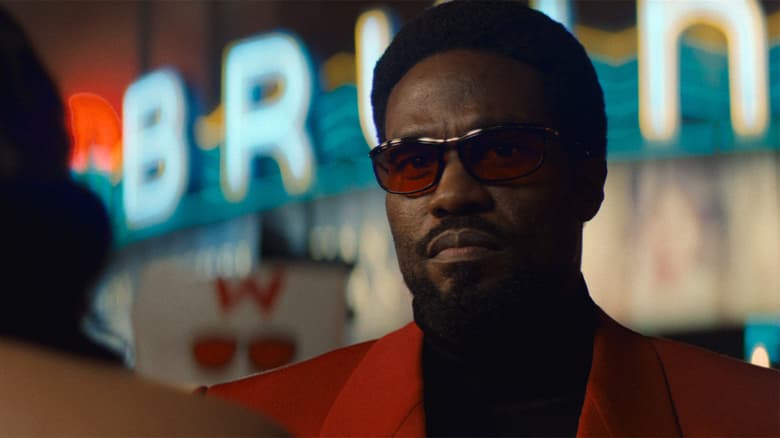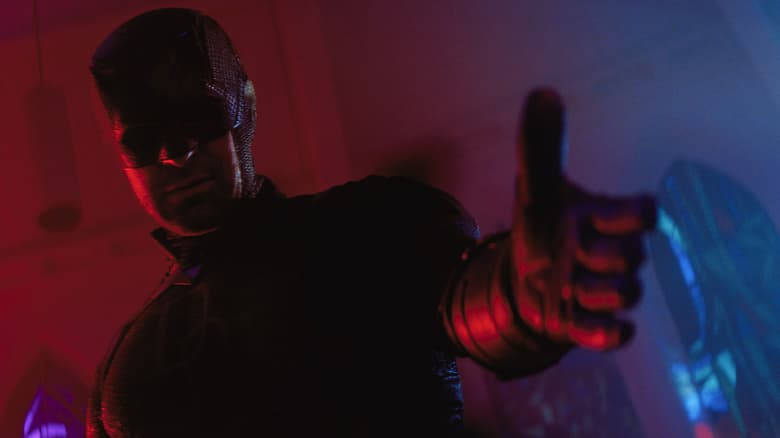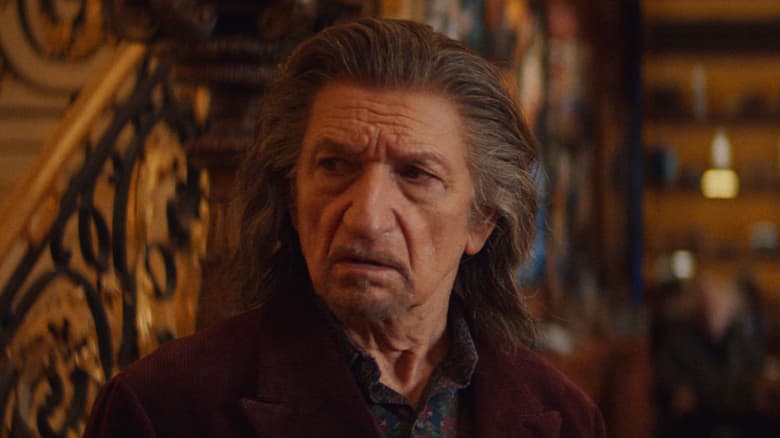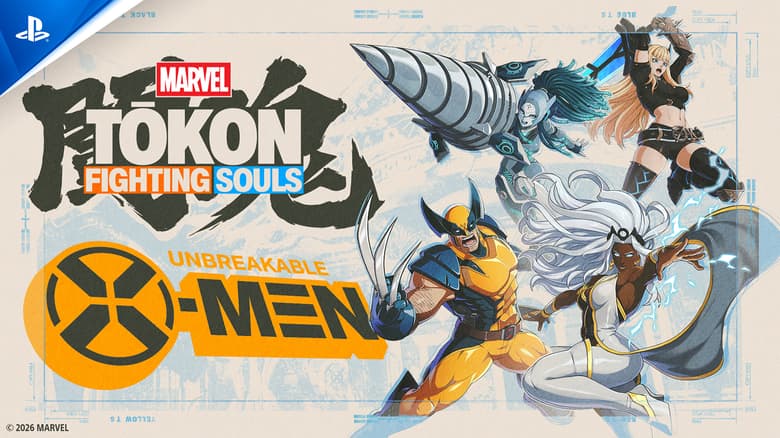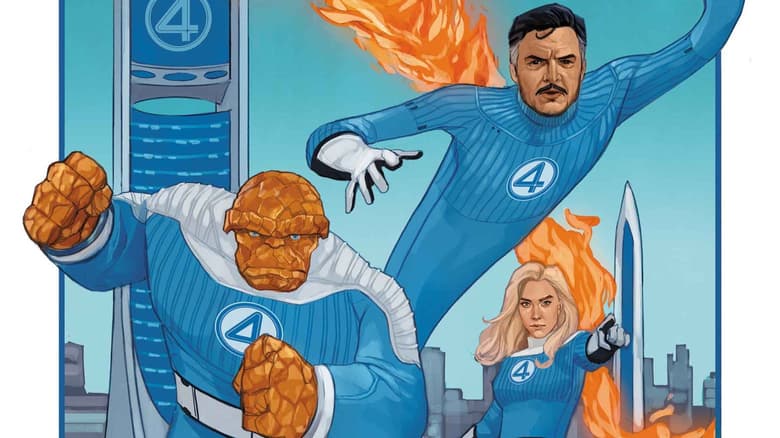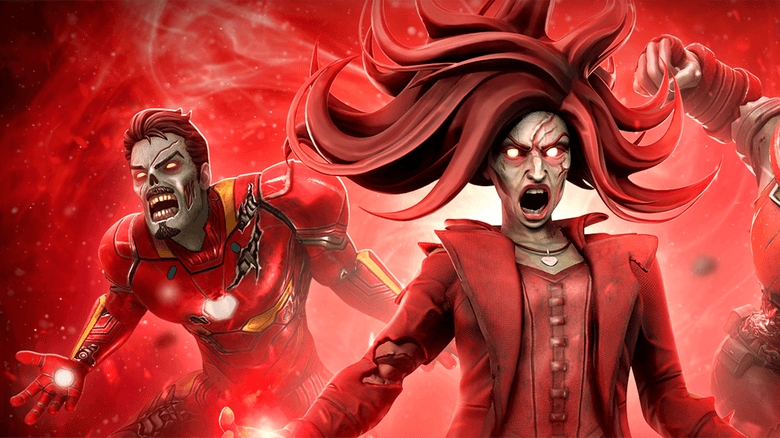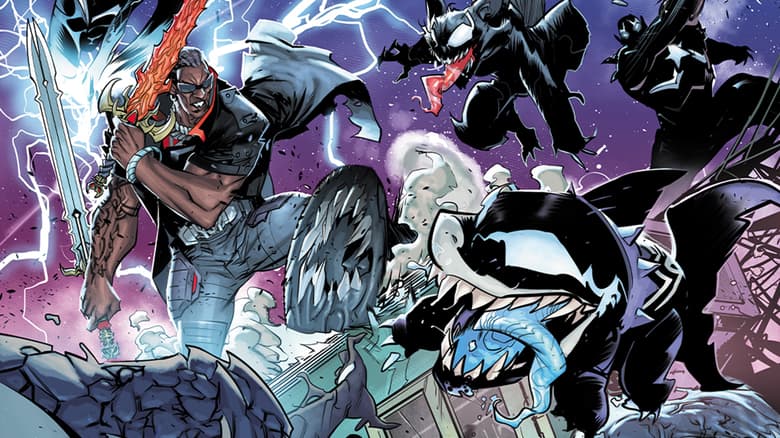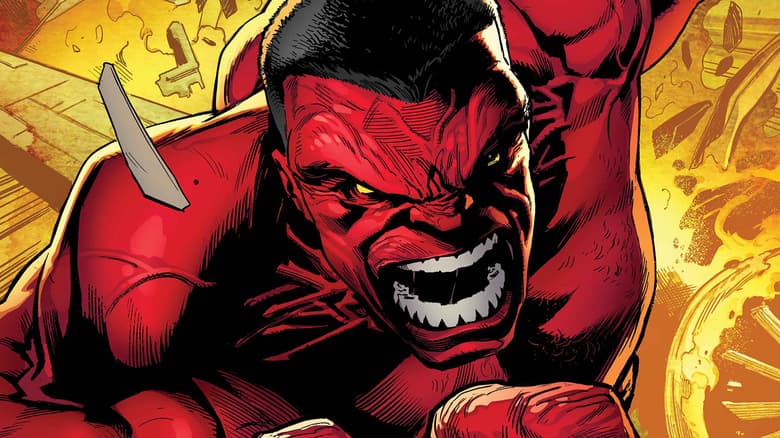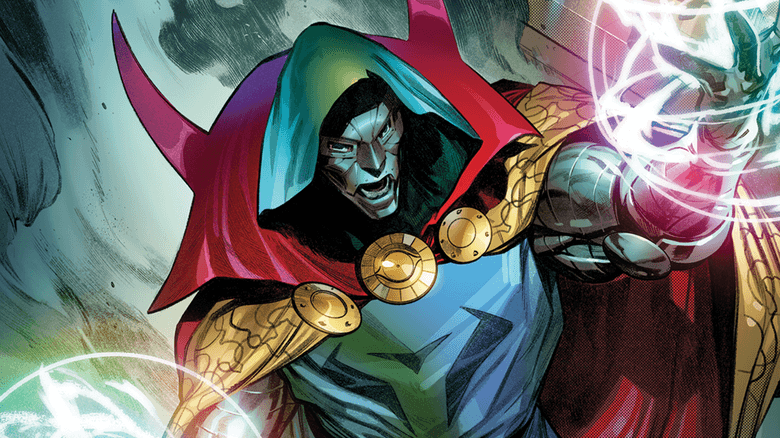'Bloodline: Daughter of Blade' Writer Danny Lore Finds the Heart of the Daywalker's Daughter
Speaking to Marvel.com, 'Bloodline' writer Danny Lore introduced Blade's daughter Brielle Brooks and her unique approach to monster hunting.
Brielle's family legacy just caught up with her. In BLOODLINE: DAUGHTER OF BLADE (2023) #1, the high school student will learn her true parentage: she is the daughter of Blade, the Daywalker himself – and there's a lot of baggage that comes with that! Fortunately, though, that also means she has inherited a few of her old man's abilities. Now, Brielle is adding a new extracurricular to her course load: monster hunting! But she won't be alone on this ride…
Speaking to Marvel.com, BLOODLINE: DAUGHTER OF BLADE writer Danny Lore introduced Brielle's new corner of the Marvel Universe. They explained why Atlanta makes such a perfect setting for a legacy character like Brielle and how they set out to distinguish her from her famous father. They highlighted the importance of Brielle's relationship with her mother Safron, while emphasizing the genuine care Blade has for his daughter. They also teased Brielle's unique approach to monster hunting, the way her first antagonist will mirror her, her circle of friends, and so much more.
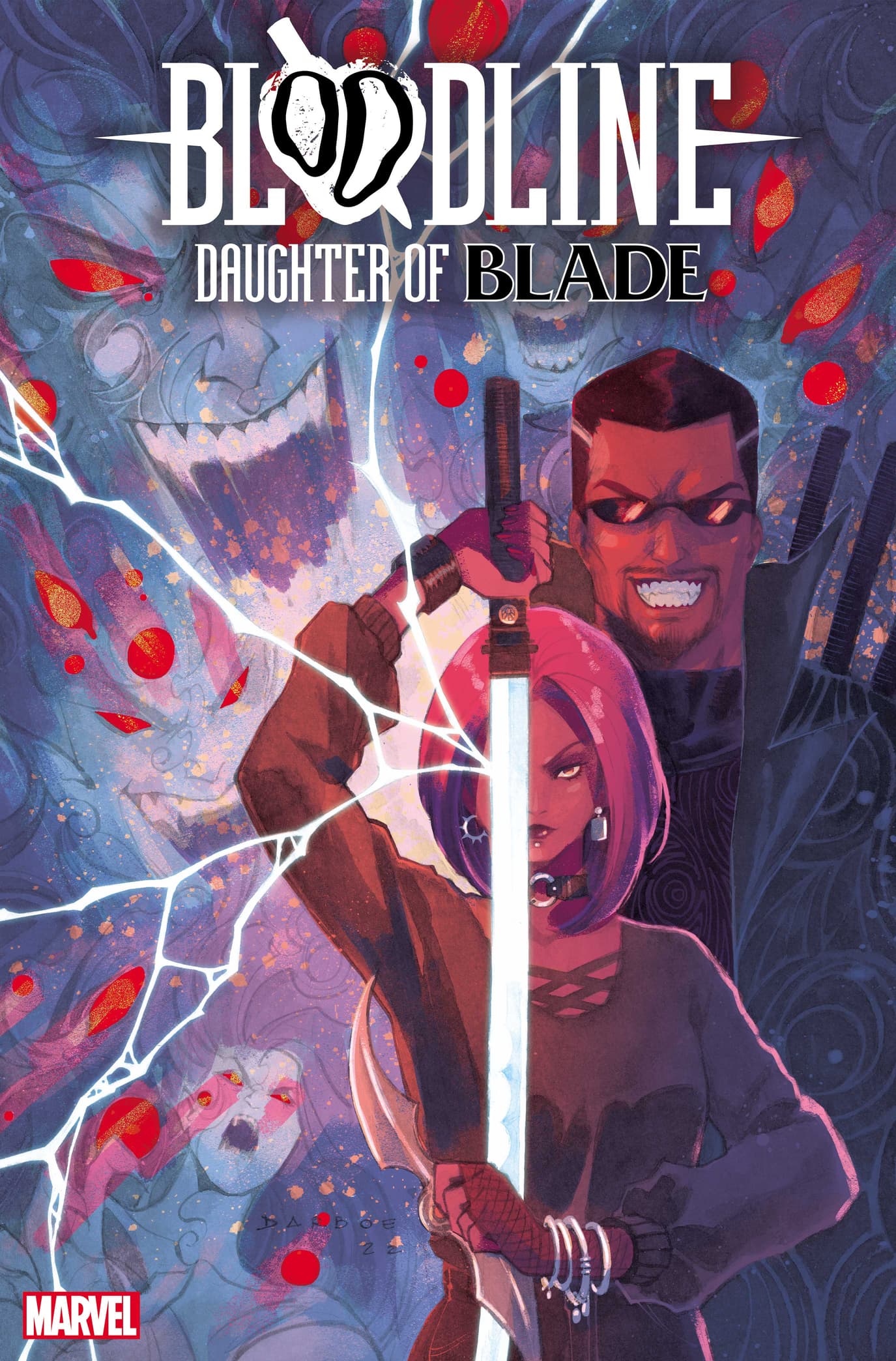
MARVEL.COM: When you started this project, what was the very first thing you knew you needed to do with the character? The little thing that just brought her to life for you?
DANNY LORE: I think, for me, when I first started this project and looking at the concept of Blade having a daughter and what that meant, the real fuel was finding that middle ground. Legacy characters are kind of a puzzle in that way, right? You're trying to find that wonderful midpoint between the legacy itself and what makes this new character just uniquely their own – so what makes Brielle both Blade's daughter, but also her own character.
This wasn't too long after I had been working on CHAMPIONS (2020), and so I had spent a lot of time thinking about teenage team dynamics, both on the larger scale and also when they interact with each other, and even – to a certain extent – not just the teens that were on that team, but that we had seen elsewhere. So I really enjoyed going, "What makes Brielle walk into a room and she doesn't feel like any other one of those characters?"
At the time, I was doing a lot of mindless scrolling on TikTok, as one does, and I fell in love with the night and day compilations of alt scene Black girls, just like the day gear and then what they wore to party. A lot of it was definitely – like, the styles were a little older than what Brielle would do, but it was just that kind of energy that I was like, "That's different."
A Black alt scene girl is different, I think, than even the other kind of goth or scene characters that we have in that age range in the Marvel Universe, and it's a different energy. I think it's an energy that is a modernization of Blade's coolness without being the same exact thing. That, for me, is what connects them, this kind of very cool, leather jacket vibe, but it's not the same as Blade. It doesn't feel like you're reading Blade 2.0.
MARVEL.COM: Like you just said, you had to balance something new with familiar story beats in this first issue. When you approached this project, how did you decide which tropes to embrace and which ones to subvert?
DANNY LORE: I think a lot of that was always part of the team's collaboration. That wasn't just me. That was Annalise [Bissa]'s work. That was Karen [S. Darboe]'s work on design... For me, it's always felt like you want to think about who in the audience that you're writing for looks and feels like that character. Who looks and feels like Kamala, like Miles, like Sam, like Viv, like Riri?
That really informed what tropes we wanted to embrace and what we wanted to subvert. This kind of focus on, "I want to write the character that would appeal to those teenagers," whatever gender or style they rock, because they know that person – for that girl that I would have looked at reading comics when I was younger, but also, more so, if I was a teenager now.
Because I think that that's also a big thing, trying to write for a younger you versus younger you in the current age. That's a very, very big difference, right? Language, style, energy is very different there. That informed everything. What positive and negative personality traits will appeal and relate to that part of the audience? What parts feel heroic to them?
For me, at least, it's this Black, edgy girl, visibly, who still just speaks up when people are wrong. Not in like a "Oh, you're wrong on the Internet" way, but in a "Something is wrong here" [way]. And how often, I think, it's easy for people to silence that character in the real world. So for me, the heroic part is that character that goes, "You don't get to do that to me. I have the means and agency and strength of self to go, 'No, you're still wrong.' You can get on me for being loud, for standing out, for not performing my life exactly the way that you guys think that I should. That's doesn't make you right. I'm still right, and I'm not going to change like what I'm doing."
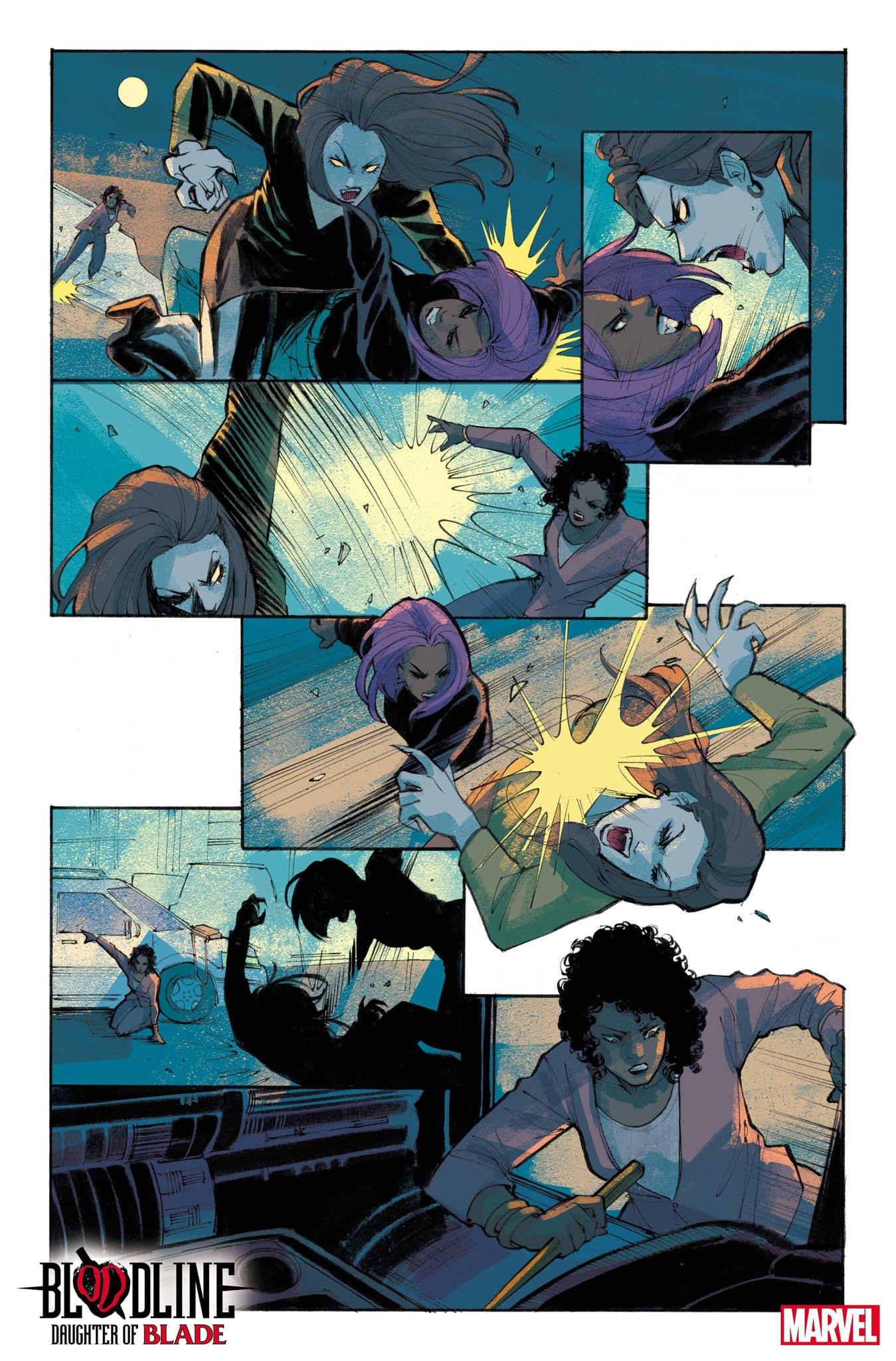
MARVEL.COM: That reminds me of a scene in this first issue, where Brielle gets confronted by her teacher.
DANNY LORE: That was a thing that, if you did not experience [it], you saw so often, especially with young Black girls, right? That young Black or Hispanic kid in general, where they're seen as louder and more prone to misbehaving, even if they're doing what's right, and being stereotyped in a certain way.
That was why we specifically went with that opening scene. She's not doing anything wrong. She's just not performing exactly the way that you envision her performing, and that's not bad or wrong. It was also why it was important for Safron to be so supportive, that the call wasn't coming from inside the house, that she understood Brielle and who she was and that she had that kind of support.
I also think that that's a really fun dynamic to have with a teenage hero: the degree to which their parents are aware, support, and also have to be parents is always a really fun thing. For some characters, that's them not knowing at all, and then there're other characters that their parents know. To a certain extent, it felt weird for Brielle to exist where who her father is was so important – but her mom somehow didn't know that she was going to be superheroing? Didn't make sense to me, so I wanted her to be fully part of that.
MARVEL.COM: Which aspect of Brielle's character do you relate to the most and why?
DANNY LORE: This is a comic thing in general, but you know how some people make fun of people having external internal monologues in comics? I literally do that all the time in my real life, just because otherwise I'm like, "I don't really know how this sentence sounds unless I say it out loud," and it's about things like, "Oh, well, I guess I have to go talk to my mom now. What am I going to say?"
I do that in real life, and I feel like everyone thinks that people don't do it in real life and that it's a comic trope, but it's not. It's the way I function. It drives my wife insane. She's like, "Are you talking to me?" "No, just myself. It's fine. Ignore it."
It feels weird to use this as a thing that connects us, but I think that sometimes Brielle doesn't want red flags to be real, that sometimes she wants to attribute it to other things because she wants to see the good in people. That is something I personally struggled with my whole life. Sometimes you don't see the red flags. Sometimes you kind of did, but you didn't want that to be true; you wanted to think better of someone or a situation. That's something I still struggle with to this day.
When you magnify that, when the person has superpowers and is dealing with the supernatural and fighting evil, ignoring those red flags can be dangerous. It can also be a thing that helps you save someone one day, but that's not always going to be the way it goes. I don't necessarily think learning that lesson always means you have to become this hardened soul, but you still have to learn how to make the choices in that situation.
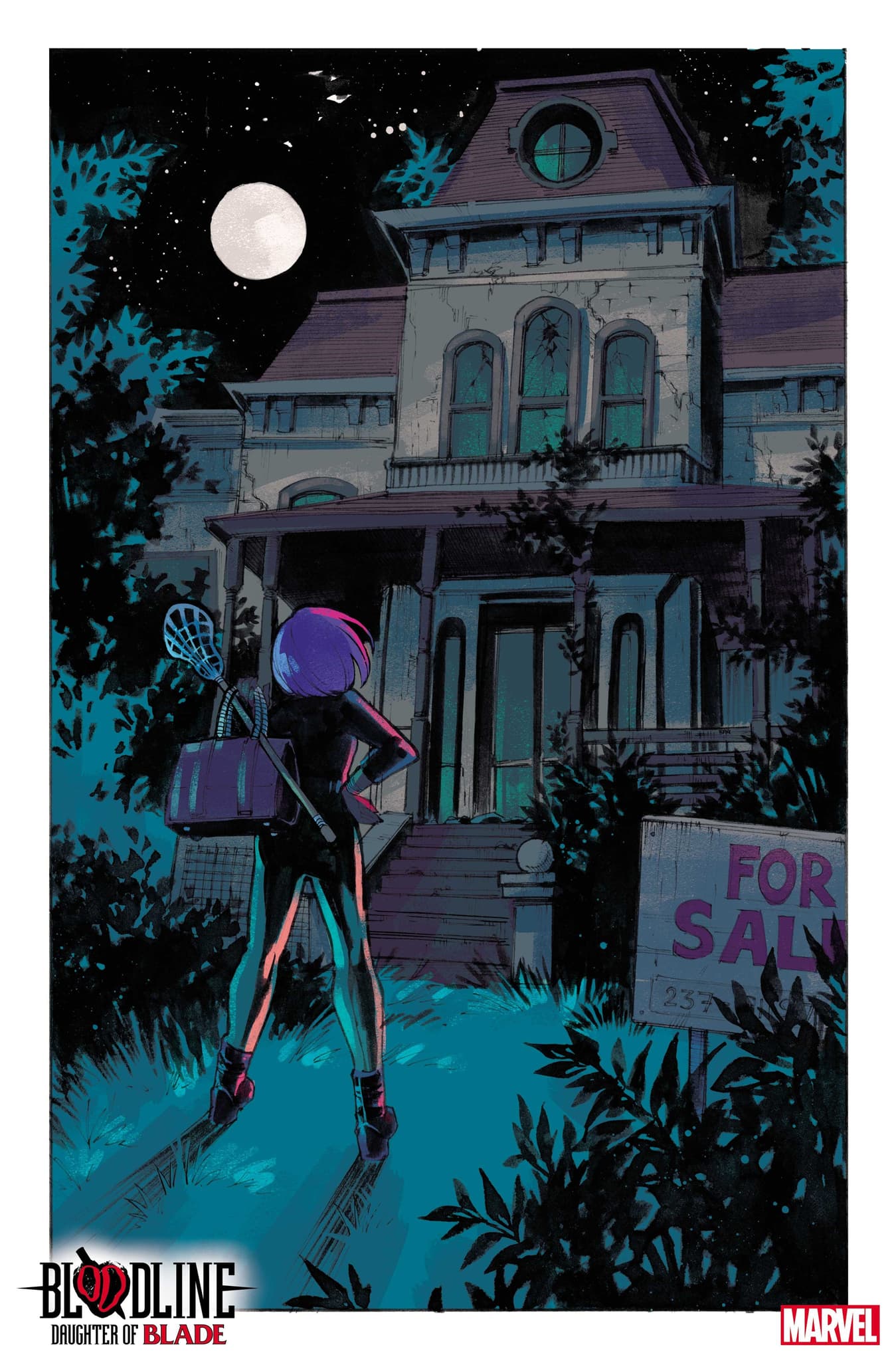
MARVEL.COM: What made Atlanta the right setting for this story?
DANNY LORE: Well, one, Black Super Hero in Atlanta. It feels right. We need more of them.
Then also, all of Georgia, but Atlanta in particular, there's that great mix of old school mystical belief, folklore, and superstition, but then also it's a super great modern city. That felt appropriate to a legacy character like Brielle, a city that can be both at the same time, that can have conversations about the past, present, and future in such a lively way.
I think that it also works really well for just the idea that she can interact with the rest of the world. It's not like it's difficult to get in and out of ATL, but also it's not inundated [with other heroes], which is great because she's not like, "This is how people who protect my city are supposed to behave," but also means that it's not like there are a bunch of nearby people that she's going like, "How do I superhero?"
MARVEL.COM: The mother/daughter relationship at the core of the story really stood out to me. Why was it so important to focus on that? How might that evolve as Brielle discovers more about Safron's past?
DANNY LORE: So one of the things that I really enjoyed when dealing with Safron and Brielle is I pulled a lot of inspiration from being – my parents were divorced. My parents were both in my life and they communicated, but I was at my mom's or I was at my dad's, right? So there's a lot of ways in which both behaved as single parents, even though that they were both very much in my life, and also interacting with other people I knew who had single parents. There's a different kind of relationship you end up having, whether it's adversarial, whether it's friendship, or whether it's a combination of both.
So I really wanted that to be crucial, the ways in which they rely on each other. So, for me, I wanted to have – and I think we get some of that relationship sometimes, but I'm like, you can always use more of it and kind of play with both how secretive and how open you are in those scenarios. True fact: the diner scene is actually inspired by an actual moment that happened with me and my mother, where she asked those exact questions in a chicken place. I was not as braced for it. I had no clue she was going to have that topic. But it's just little moments like that, for me, that make it; the, "I'm going to support you because I know how much the world can be against us, how much we have to struggle, but that doesn't mean that I'm not going to voice concern," or "I'm not trying to sugarcoat or hide what may be happening to you," which I think, when you have that sort of relationship with a parent, that it can appear that way to the outside world, as if the parent is in denial.
Sometimes that does happen, but sometimes it's just, "I am aware how difficult the world is and I'm not going to put you on blast in front of it when I have fostered enough trust that we can have those communications." That's why, early on, there's the moments of, "I don't go through your stuff if you don't go through my stuff," those agreements.
It was important for me to build that throughout, because I think that that also changes Brielle's interaction with the Marvel Universe. If her mother is aware of the threats, but is also aware that she can't keep her daughter from the threats entirely... That's just a metaphor for that moment with your mom growing up, right, where she is fully aware of what growing up in the world means and she has to make a decision: how much to shield you from it and how much to prepare you for it. That's really what I wanted to bring to their relationship.
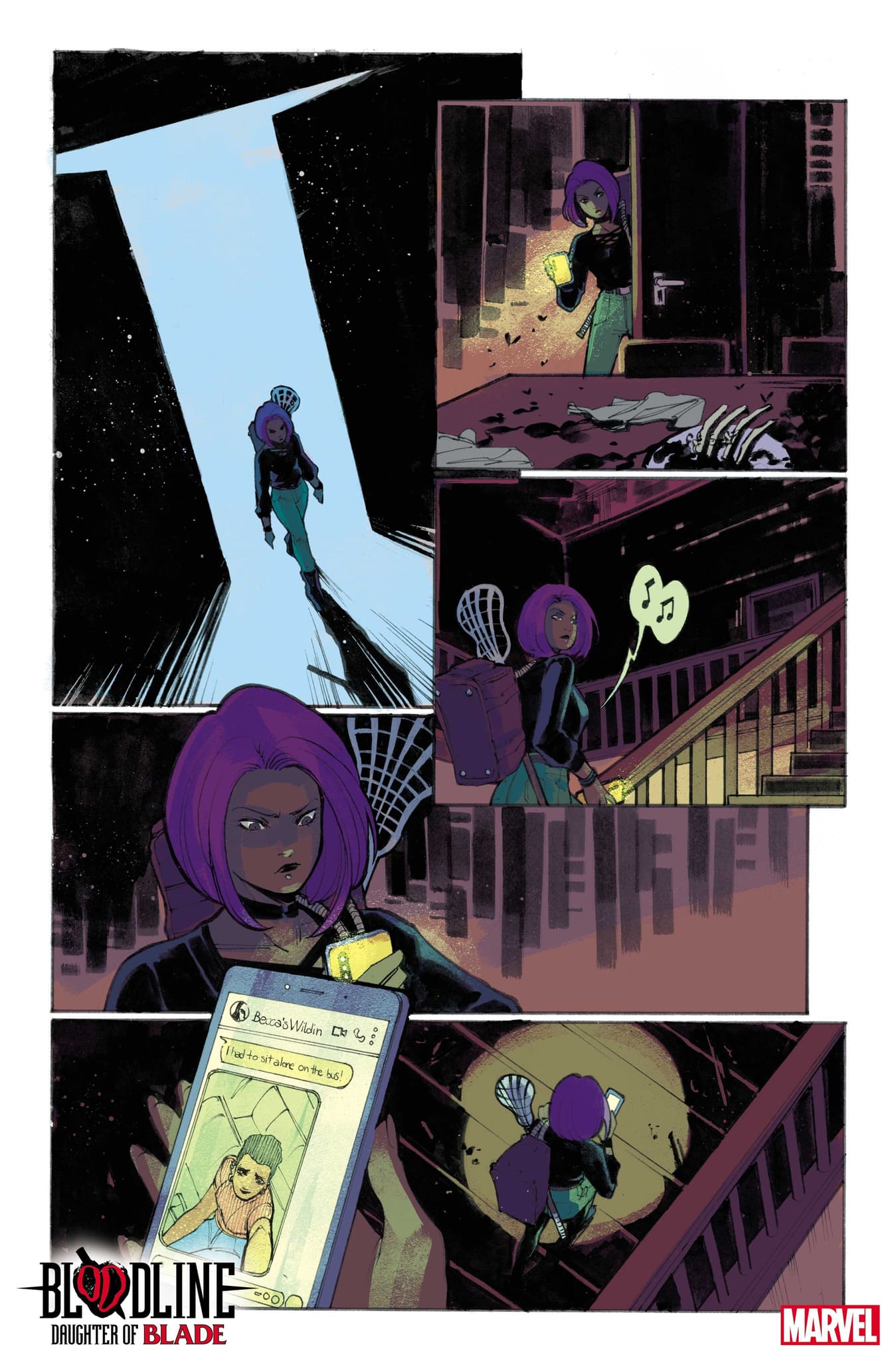
MARVEL.COM: While Blade hasn't been part of Brielle's life up until this point, she's still her father's daughter. In what ways would you say she takes after him?
DANNY LORE: I think, to a certain extent, she is as stubborn as both of her parents, to a very big degree. On the flip side, I think that she – Blade, in spite of being a Daywalker, can be very black and white about things. He can be very, "You're bad. You're good. This is what I hunt." I think that, especially as a teenager, she's a bit more optimistic than Blade has ever been, really, or at least Blade has ever admitted to being. I could talk for hours about how I think that he's actually quite a bit more optimistic than he likes to let on.
But I think that that then changes how she approaches vampire hunting, even. Because yes, there are monsters, but I think that Blade comes into it with the assumption, "Monsters are monsters." She comes into it with, "The world is wild and weird and people assume the wrong thing about me all the time; I'm not going to do the same to everything else."
Now, sometimes that bites her in the butt, right? Sometimes she's going to be a bit too empathetic. I think, at times, she's going to assume the best in people when they're not necessarily giving her those vibes, but I also think that she's a teenager, and even if she wasn't, I love when good characters get things wrong and have to navigate what that means.
MARVEL.COM: What can you tease about their first encounter with each other?
DANNY LORE: I think that, in FREE COMIC BOOK DAY 2022: AVENGERS/X-MEN (2022) #1, we ended with a soft one, essentially saying that "Your daughter needs you," and that's the framework going into this, that he shows up when she needs him – and I mean that in more than just the supernatural way. We made the specific choice with her not to have spent as much time hung up on who her father was than some other stories. This wasn't to negate the way that a teenager might think of that, but just that I think that we see that narrative a lot, and there are some kids who don't experience that.
I think she's been curious, but it's different than it really informing her day-to-day. So having him there is weird from a different angle, right? From this angle of she's not just meeting her dad; she's meeting this person who is incredibly intimidating and weird, but is not trying to be a jerk to her... He's just kind of built that way, but he cares.
One of the things that was very important to me and to the whole team was, as we get a chance to see their relationship, it was very important for us to make it clear that he never stopped caring about her, that his physical absence in her life was not because he didn't care. That was incredibly important to us. I want to assure people that they're not going to be like, "Well, where did this happen? How did this happen?" It's not the focus, but it was important for us to deal with that.
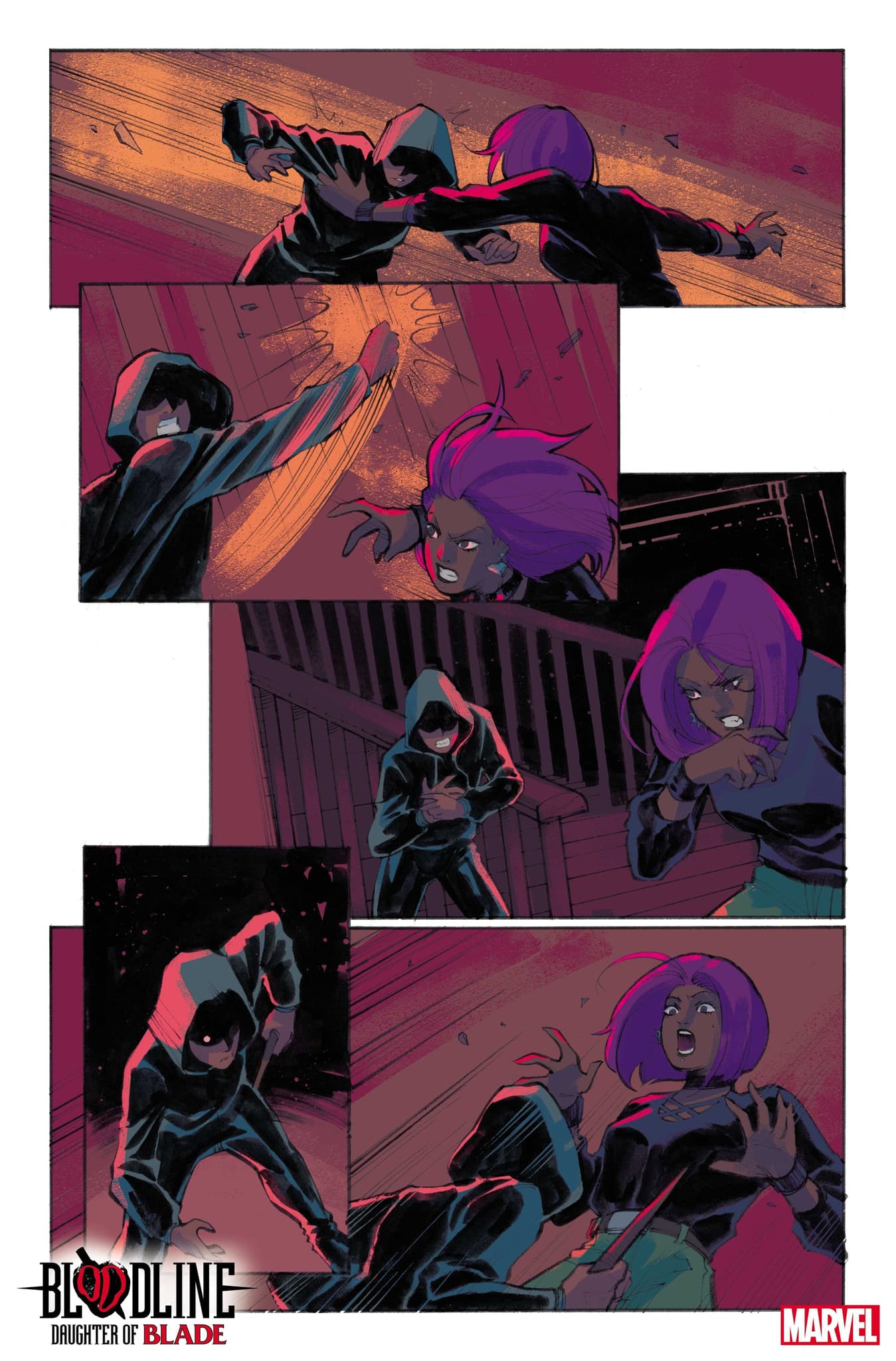
MARVEL.COM: Brielle also has a couple friends tagging along for this adventure. Who are you most excited for readers to meet, and why?
DANNY LORE: Oh, boy. Oh, this is hard, because, short term, the answer is Jayden. Long term, if people like what we're doing here, I really want to get a chance to get more into Rebecca – Bex. I think both characters have a lot of great stuff and it's that thing where they're a group of friends, but Jayden and Rebecca have very different interests. So they are friends, but interests-wise, Brielle really is the heart of that crew. Whereas maybe if Rebecca and Brielle are goth jocks, Jayden is doing not-Smash Bros. tournaments. Maybe they wouldn't necessarily hang out as much if it wasn't for Brielle, but they both still care for each other and I think it's a really fun dynamic.
I think, a lot of times, when you get the trio, you get that all three of them would have hung out in the different combinations regardless, but I don't necessarily think that's true. Not in a dislike way; just that they wouldn't have gravitated towards each other. Brielle is kind of that midpoint of those interests, which is super fun. There's a lot of fun inspiration for both of them. I got a lot more into hardercore punk stuff, which inspired Rebecca a lot. Then, for Jayden, I was watching a lot of tournaments for video games – a lot of inspiration from some of my favorite competitors there, just in terms of the concept.
MARVEL.COM: We only get a hint of who the antagonist might be in this debut issue. What can you tease about the villain of the series?
DANNY LORE: I like mirroring antagonists and protagonists, and I like doing that with people's foils. Brielle and [the antagonist], to a certain extent, have that in this story. We wouldn't need that if it was going to be something relegated to the high school hallways.
MARVEL.COM: BLOODLINE is a gorgeous book. Tell me a little about working with Karen on this project, and how the design for Brielle's character came together.
DANNY LORE: I mean, one of the first things that I noticed about Karen's work when Annalise was like, "How about Karen? Karen seems dope!" is just such a great sense of style and fashion. So I knew that, with us wanting to do this character who would be very aesthetically aware, Karen was great for it.
But also, Karen is just enthusiastic and clearly is enjoying the project and enjoys collaboration. I enjoy being inspired by Karen's work constantly. I work both in prose and comics, so I love working with artists so much because, even if I could draw, that's not the same as even being remotely decent at sequential storytelling, right? There are so many skills involved and so many skills that are simply off the table for me. I love the passion that is put into sequential storytelling, into comic books in general.
When I look at a page of Karen's work, that informs the next page in the script that I write, and it's back and forth. I see a panel of Blade and I'm like, "Cool! Changing this panel description later on because I now want to parallel that because it's so cool!" That's how I feel working on it with Karen.
Obviously, I have to do a lot of references because neither of us are Atlanta local, but I can describe things and be really excited for what's going to come out the other end. I don't script with the idea that the script is ever going to look exactly how it looked in my head. If that was possible, I would be doing the drawing. So I like the elements both of the known – of like, "Cool. I know you enjoy doing this. I know that, if I reference this other thing you do, you'll get it." But I also love that unknown of, "They will take whatever I wrote and make it a thousand times better."
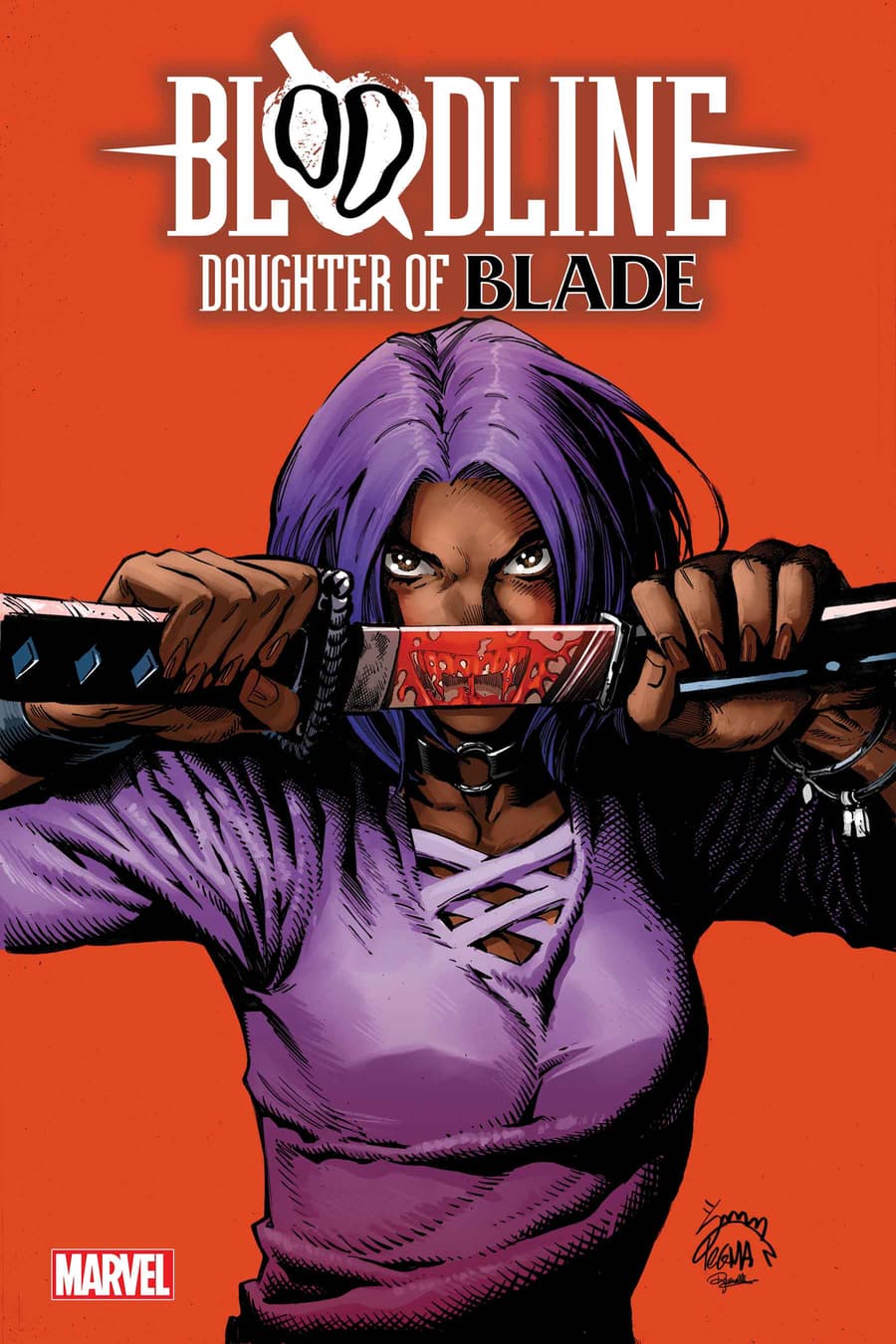
MARVEL.COM: If Brielle was a gamer, what would be her go-to video game?
DANNY LORE: Oh, I feel like she'd be one of the people right now really hyped for Street Fighter, the upcoming one. I tend to like long gaming sessions where I'm going through a long story or like Minecraft, where I'm just exploring for a long time, but I feel, for her, it would be the sorts of games that you can play short rounds, but play a lot of them in the same time span, so fighting games. Maybe some of the rogue lites like Hades and stuff like that, but also primarily stuff that she could do on the go. I feel like, if she did a lot of gaming, it would be handheld while going to a [sports] game.
She does play with Jayden and she likes sports, like the fighting games, but I think that would be where she kind of rocked. I think, even then, it might be a group of friends or maybe streaming, like that kind of thing where she would still really enjoy interactions with people. If she found a good crew playing FPS games, like that kind of thing, I think she would do that, but she would prefer squads because she will go off on somebody in a lobby.
I just imagine her – I was watching some YouTube videos of people intentionally trolling trolls and toxic players in games…. I feel like that's real Brielle energy. She's not even mad if you said something to her, but if you insulted her teammate, then she's going to wreck you. I feel like that's real Brielle energy.
I think she'd probably also be that person who – you know when you're new to a game and you're apologizing because you're not doing well? She's the person who just ends up kind of accidentally leading you through it, being like, "It's no biggie" and is happy to teach you.
MARVEL.COM: What do you hope readers take away from this series?
DANNY LORE: Man, I want them to have so much fun. If they even have a 10th of the fun that I've had working on Brielle, if even one of them is like, "Well, I've adopted Brielle now," that's great.
Also, I've talked about it publicly a bunch: Going to see Blade in theaters is one of my strongest memories, hands down. Sunday matinee with my dad. I remember going and how important that was to me and how, in a real way, creating Brielle is this full circle thing for me, in terms of loving Marvel and getting to write a story that's not just creating her, but specifically involves her relationship to her father. That's really powerful to me.
I know that there's dozens, if not hundreds, of kids – both industry and non-industry, whatever – who have, at some point, opened a notebook and sketched or drawn or even just chatted about the idea of, "If Blade had a kid..." Because we all needed something, and Blade represented whatever it was we needed.
I hope that, for people who open this book, they get a little of what they needed, whether it be Blade, whether it be the way that Safron parents, whether it be Brielle not letting people shut her down, or if it's the way that her friends don't let people speak badly of her. There's so much that I hope people can find that they need, or that they read it and they go, "Oh, I didn't need this, but I know someone who does," and hands it off to some 15/16-year-old kid that opens it and goes, "Yo, Brielle and her friends look like me for real. They sound like us; they get it."
Don't miss Brielle's bombastic debut in BLOODLINE: DAUGHTER OF BLADE (2023) #1, on sale February 1!
You can grab these comics and more digitally or at your favorite local comic book shop. Be sure to ask your local shop about their current business policies to observe social distancing or other services they may offer, including holding or creating pull lists, curbside pick-ups, special deliveries, and other options to accommodate. Find and support your local comic book shop at ComicShopLocator.com or by visiting Marvel.com/LoveComicShops.
For digital comics, all purchases in the Marvel Comics app can be read on iPhone®, iPad® and select Android™ devices! Our smart-paneling feature provides an intuitive reader experience, ideal for all types of mobile device and tablet users! Download the app on iOS and Android now!
The Daily Bugle
Can’t-miss news and updates from across the Marvel Universe!
